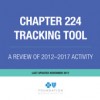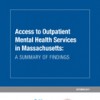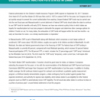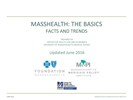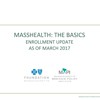REVISED - Integrating MassHealth Long-Term Services and Supports: Considerations for ACOs and MCOs
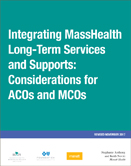
This brief prioritizes issues for consideration as accountable care organizations (ACOs) and managed care organizations (MCOs) prepare to integrate and fully manage comprehensive long-term services and supports (LTSS) over the course of Massachusetts’ five year 1115 waiver extension. The identified priority areas were informed by lessons learned from managed LTSS programs in other states and interviews with key stakeholders in Massachusetts. This brief concludes with a series of detailed descriptions of the institutional and community LTSS covered under the Medicaid state plan that will eventually be integrated into ACOs and MCOs.
Based on valuable feedback from stakeholders this brief has been revised to better distinguish between certain services, in particular, adult foster care and group adult foster care.

